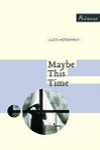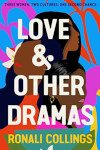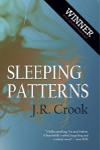Alois Hotschnig – Maybe This Time
Posted 10th September 2011
Category: Reviews Genres: 2000s, Angst, Psychological, Short Story Collections, Translation
4 Comments

Are you sure you know who you are?
Publisher: Peirene Press
Pages: 99
Type: Fiction
Age: Adult
ISBN: 978-0-9562840-5-1
First Published: 2006 in Austrian; 2011 in English
Date Reviewed: 25th August 2011
Rating: 4.5/5
Original language: Austrian
Original title: Die Kinder Beruhigte das Nicht (That Didn’t Reassure the Children)
Translated by: Tess Lewis
In this collection of short stories, Hotschnig examines identity, it’s loss, and the desire to find or create it.
In Maybe This Time, the locations never appear to be what they first seem – neither do the people, or indeed the narrators. The effect it has is similar to what happens when a near-sighted person takes off their glasses. One moment you can see everything clearly, or at least you think you can see clearly. Then you take off your glasses and everything is blurry, in fact sometimes the more you try to focus, the harder it becomes. And then a bit later you might realise that some things are clear again – it’s only a few things, those close up, but you can see them even better now than you could with the glasses. The stories in Maybe This Time are layered, and you’ll likely only ever understand some of it, and you’ll likely have a different idea of what’s happened than someone else.
This is a lot of what works about the book, the mystery. Like Peirene Press’s other releases, Maybe This Time is a short book that stays in the mind much longer than many long books, but because of the abstract nature of it you’ll be pondering on it even longer than, say, Tomorrow Pamplona. There really is nowhere to establish your bearings for any period of time and when you do think you’ve a grasp on what’s happening something that doesn’t relate to your idea pops up.
And before you know it, just as you think you might be getting somewhere, it’s ended. In fact some of the stories don’t even span two pages. Hotschnig will not provide you with an explanation either, and there are no conclusions in his tales.
The stories are very poetic, and although you have to take into account the translation (by Tess Lewis, who has made splendid work of the descriptions) it is hard not to believe that in Austrian German the effect would be similar.
And speaking of the descriptions, which are so detailed and given you a real sense of life as though you are an art gallery patron who has viewed the same work for an hour and have thus notice the smallest of brush strokes, these too help the stories sound poetic. Truly the book is poetry in prose.
The stories are about loss of identity, which makes a lot more sense than the stories themselves for their abstract structure. Because the general theme is so specific the book favours a dip-in approach rather than the usual recommended single sitting of Peirene Press. That’s not to say you can’t read it all at once but the characters can become blended together. Then again, judging by that general feel, they could be one and the same!
Each of the narrators is male and the book has a definite masculine feel to it. And there are some very strange and sometimes spooky things that go on, for example the last story is reminiscent of the book, Before I Fall. It would appear that each one is searching for something – themselves, certainly, and in different ways, but also a better world. Where the man in the last story keeps meeting people who know him for different reasons and in what seems to be a different sort of guise, there is the sense of crowds and the rush of people going about their day.
In fact, there is an atmosphere of expectation in the stories. The characters want or need to act as expected and it is this that runs most perfectly alongside the goal of Hotschnig to present identity in today’s world.
As someone who openly accepts that they have only come to a bit of an understanding of the book, and would only be prepared to discuss with others a smaller part of that bit for fear of being totally wrong I must say that rating this book is most hard. On the surface you have a collection of mostly mundane stories, on another level confusing ones, and on a third deep stories with a powerful message. Please excuse me for taking everything into account when I rate it.
Maybe This Time is marvellous, and Hotschnig very clever. So clever, in fact, that he has left this reviewer baffled. Highly recommended, particularly for those who can read it in a group.
Translated by Tess Lewis, received for review from Peirene Press.
Related Books
September 21, 2011, 6:51 pm
Loving the myopic imagery, also agree with it being poetic, it has that feel of something crafted, as though anything extraneous was pared away leaving just the necessary images, enjoyed your post thanks.
Charlie: Yes, it really is just bare basics, at least in the writing.
September 27, 2011, 1:32 pm
I’ve just reviewed Maybe This Time today and I agree with lots of what you say. I enjoyed it, but also felt that I didn’t entirely understand it. Perhaps reading it and discussing it with a group is a good idea….
Charlie: I’m not sure I’ll ever understand it entirely, but I know it’s about the self more than what is going on around them, and the author has spoken of being able to see yourself in it in a way.
4 Comments
Comments closed


























September 12, 2011, 3:36 am
Hi Charlie, nice review! I particularly liked the analogy of a near-sighted person taking off their glasses. You really captured the disorientating effect of these stories, which I suspect is just what the author hoped to create. It’s interesting that you felt the book had a definite masculine feel to it. That’s not something I was really aware of, but maybe that’s because I am a man. I tend to notice more if a book has a feminine feel! That’s why it’s good to read about other people’s reactions. Thanks for the review!